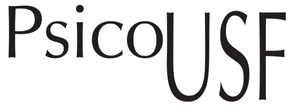Abstract
The present study aimed to evaluate the predictive relationship of socio-demographic variables, cultural adaptation and hope on general well-being (GWB), subjective (SWB), social (SoWB) and psychological (PWB) and in the meaning of life. The participants consisted of 108 immigrants. The instruments used were: bio sociodemographic questionnaire, Mental Health Continuum - Short Form, Dispositional Hope Scale, Acculturation Measures and Meaning of Life Questionnaire. In general, only sociocultural adaptation showed a positive predictive relationship with all types of well-being studied, nonetheless this measure presented a negative predictive relationship regarding the presence of meaning in life. Psychological adaptation was predictively and positively related only to SWB. The perception of cultural distance negatively affected SoWB. The presence of meaning was also negatively predicted by the type of immigration and age. The search for meaning was negatively predicted only by income. The results are important for a better understanding of factors that influence the experience of immigrants in Brazil.
Keywords:
Brazilian immigration; sociocultural factors; refugees; positive psychology
